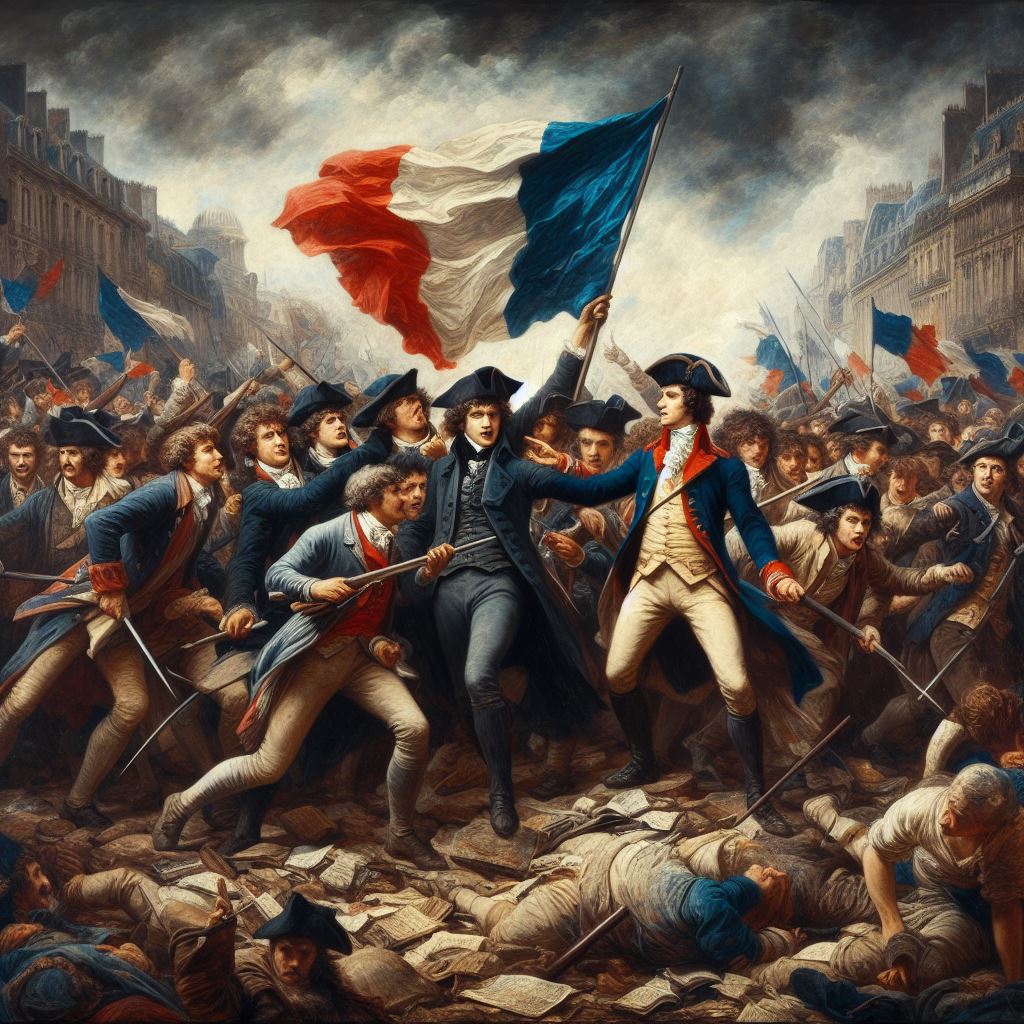The never-ending French Revolution: the greatness and the limits of a model
Attal, Bardelle, the Olympic Games and the European Political landscape.
Aricle written by Francesco Grillo for Il Messaggero, Il Mattino and Il Gazzettino.

"Paris est cette ville divine sans dieu". This is the essence of Paris in the words of one of the many artists who, in the 20th century, spent part of their lives in the Montmartre cafes. Such words represent a significant portion of the identity of a city and a country: the romantic - and arrogant - idea of divinizing the Reason and the reasons of a State that has been redesigned five times to preserve its original principles. An identity on which Macron stakes almost all his cards to respond to the crisis of consensus, proudly declaring that "France remains France," but which also constitutes the limitation of a model struggling to fill the leadership void left in Europe by a chancellor (Angela Merkel) who, instead, feared hyperboles. The French society tends, in moments of crisis, to resort to young principles in order to save the past. Such model can only partially inspire those who would like to rebuild a political project - destined to endure - on identity.
When Gabriel Attal was appointed the youngest prime minister in the history of the Fifth French Republic, last week, he did not achieve an absolute record. Saint-Just was 27 years old when he faced the guillotine, as President of the National Convention leading the revolution. That revolution was declared over by Napoleon after a coup that appointed him First Consul at the age of 30. Attal, on the other hand, was appointed by Macron to confront the rise of Rassemblement National (founded by the Le Pens), whose president, Jordan Bardelle, is 28 years old. And yet, the cases of Attal and Bardelle, like that of Laurent Fabius, who at 37 was called by Mitterand to bring discipline to finances that Mitterand himself had lost control of, are different from Macron's. They were chosen to bring freshness to a pre-existing project. Macron, on the other hand, became the President of a movement he had invented and with which he succeeded in the purpose of liquidating the two parties that had governed France for 70 years.
In Attal's case, it is therefore a matter of contributing to save a political project with a weakness that is also its strength: being a minority. The votes for Macron's party, founded just seven years ago, have never exceeded 30% in the first rounds of elections, but this gives it a double advantage. It can focus on a single electoral segment and afford a radically reformist agenda on many issues (including the European one, managing to express positions that are neither federalist nor skeptical). Yet, it is not penalized because, thanks to the French electoral system, in the second round, the party has regularly won due to the presumed unelectability of the opponent (both on the far right and far left) and the exhaustion of the roles of Republicans and Socialists.
Saving a past in which other countries sometimes seem trapped is a task for younger generations. Three aspects make the French model one to study but not to imitate.
Firstly, the strength of identity. According to a law - enacted by Mitterand in 1994 - France has an obligation that might seem hilarious to some: all the documents about any conference organized in France must be in French. The obligation to use the local language becomes a bureaucratic obstacle in universities competing with Anglo-Saxon ones.
Secondly, an influencial power surviving even an inevitable economic decline. France is the only country maintaining what remains of a previous Empire (two "non-autonomous" territories and three departments scattered in the Atlantic Ocean). It is the only country in the European Union with a nuclear arsenal, a permanent member of the UN Security Council, and second only to the United States in the number of officials appointed to the International Monetary Fund. However, one can apply to France what is even more true for the United States: being perceived as a power makes you a target for those who no longer tolerate a crumbling world order. The aggravating factor is not having the economic status to finance the political one (although the only European company among the top 20 in the world by market capitalization is French).
Thirdly, demography. France has one of the highest fertility rates in Europe (1.84). Therefore, the French have a lower average age (41.7 years) than the European average. But this entails specific choices and a reallocation of public spending that can be unpopular. As the Macron government is experiencing once again with the increase in the retirement age, it risks paying a political price in the upcoming European elections.
The strength of the idea that France has promoted worldwide with the force of ideas and bayonets is also its weakness. What is inspiring in that model is the ability to make choices and to pay their price. France is a country capable of anticipating history. But history is also made by patiently seeking convergences between opposites, otherwise any leadership is only partial.

